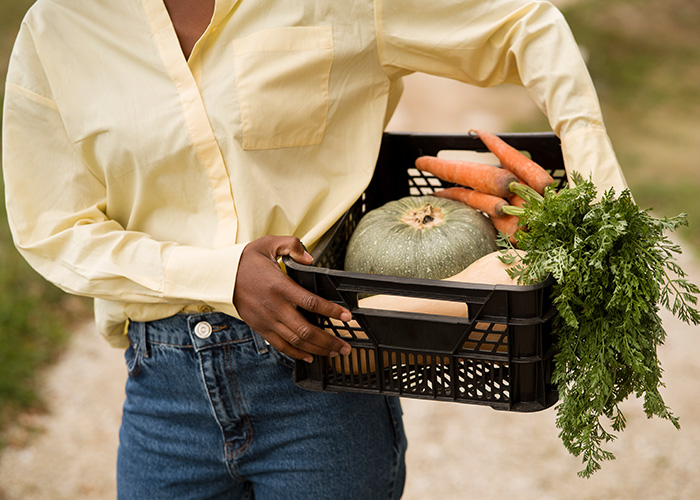(Don’t worry, you can still drink wine!)
Storytime
I have a confession to make: (ok – more than one!)
I once baked 63 full sized spinach muffins. I have also made 31 jars of marmalade, and I currently have seven large Ziplock bags of flash frozen cherry tomatoes in my freezer. I need help.
I absolutely love spending time in my veggie garden.
Some of my happiest memories growing up were of me foraging in my mom’s massive backyard veggie patch and eating peas and green beans from the vine.
Since becoming a mother I’ve now figured out that a veggie garden is the perfect toddler playpen and is better for your mom-spirit than yet another depressing and expensive Spur play canyon afternoon.
There is just one problem. The South African climate lends itself to growing all kinds of things, and pretty soon you can end up with more veggies than any normal human being should consume. (See above regarding my impractical abundance of spinach muffins.)
Now, if you are an avid homesteader or super chef, you can gladly go ahead and can/pickle or preserve the excess veggies for the long winter months. However, if you are a normal person who buys their pickles from Spar and who have a cupboard full of Koo cans, then there is another option.
Swop your spares.
Not all vegetables can be easily preserved, and I can tell you, having a freezer full of spinach muffins sounds way cooler than it is. Nobody needs that much leafy greens.
Now whether its spinach, kale, cucumbers, zucchinis or onions, (another veggie I always end up with an excess of), make up a bushel, and get on that neighbourhood Whatsapp group. Give it away to whoever answers first.
You’ll be surprised about how many people will jump at the quaint opportunity of picking up a bunch of locally grown parsley, or a string of plaited onions or garlic. Not only is this good for the environment, but it also fosters a sense of community. Settling down, sharing and refining our agricultural skills as a major development in human civilization and there is something primitively pleasing about receiving real, fresh produce straight from another human.
Not all waste is wasteful.
Ok – so no one wants your veggies? Well, don’t feel too guilty. And don’t force feed your family beans for days.
The honest truth is, that a veggie garden waste is not the same as storebought food waste, and there are other sensible and ecofriendly ways to use your excess. Certain plants, like rocket, herbs and onions don’t necessarily have to be harvested. If you have grown more than you need, simply leave the rest for the pollinators. There are few things that make me as happy as hearing the late summer buzz of bees enjoying my rocket that has been left to flower and go to seed. The same goes for the other vegetables mentioned. Tomatoes, pumpkins and even fruit from your fruit trees can all me made into compost and used to feed the next season’s bumper crop. Just remember to take out all the seeds before you do this or you’ll simply be growing MORE veggies on your compost heap!
Don’t beat yourself up about not using up all your extra produce. Growing vegetables is all about being in harmony with nature, and part of that harmony is normal decay. Allow this year’s plants to feed the soil for next year. Just don’t send them to a landfill.
If not spuds, then seeds.
So, you have gifted or composted your overflow of veggies for the year, but how do you manage your harvest for next year? Remember the seeds you removed before composting? Now is the time to use them wisely.
Perhaps you had neighbours who were less than thrilled about getting a bushel of Kale? Well, place some of your saved tomato seeds in an envelope, write a note with planting instructions and drop it in their mailboxes. Yes, they may think you are a freak, but we can promise you one or two will follow your instructions, and by December they might just experience the joy of having grown their own tomato.
If all this sounds a bite cutesy and like something from a Hallmark movie, don’t despair. Yes, it might take your neighbours off guard initially, but the act of sharing food, or resources, is a fundamental human experience and by handing over that pumpkin, you are handing passing on a bit of goodwill…Sharing a bit of community and bringing together your neighbourhood – one awkward vegetable exchange at a time.



